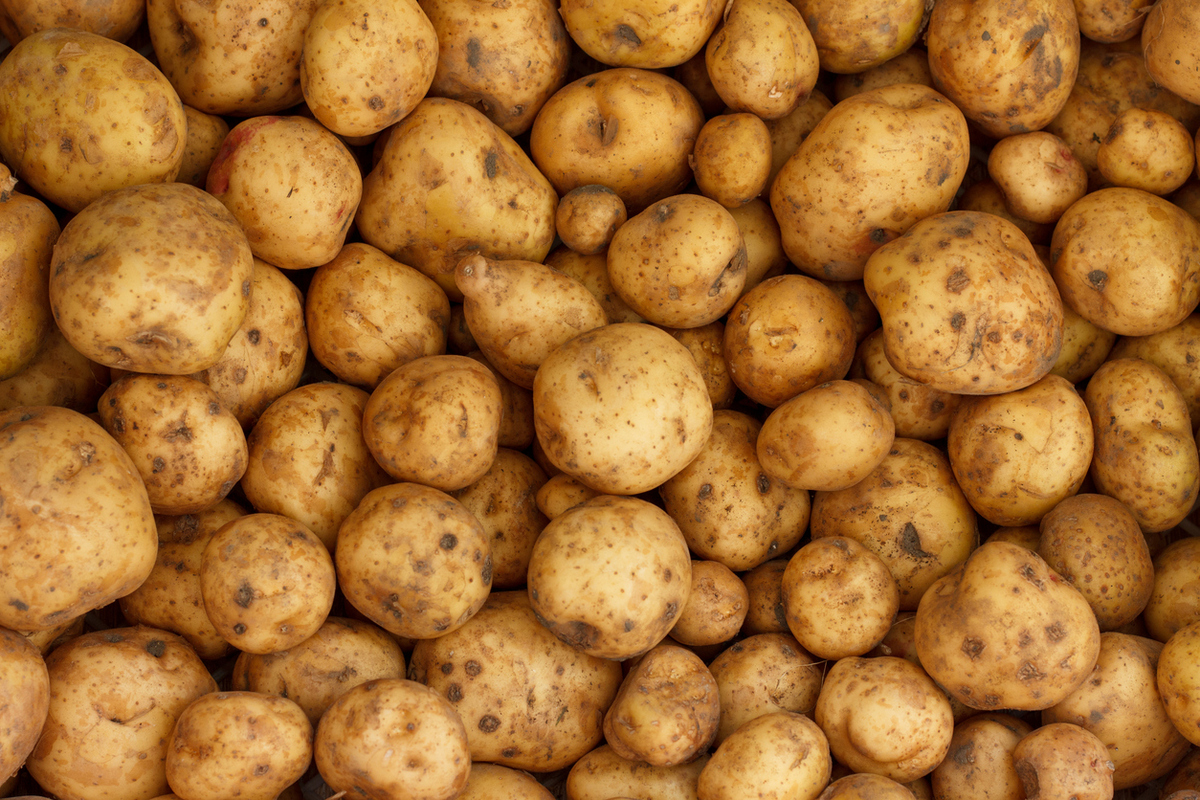
Gene Editing Enhances Resistance of Potato to Zebra Chip Disease
May 29, 2024| |
A study published in the Plant Biotechnology Journal shows that the genome editing of NPR3 confers potato resistance to Candidatus Liberibacter solanacearum (CLso), a bacterium associated with zebra chip disease. The significant economic losses caused by the disease necessitate alternative approaches to develop resistance to the disease.
The researchers generated multiple StNPR3-edited lines using Agrobacterium tumefaciens-mediated transformation. The study found no abnormal growth in edited lines compared to control plants. When evaluated with CLso, the edited lines exhibited reduced disease symptoms, reduced discoloration, a significant reduction in CLso titer, and higher expression of defense-related marker genes.
To better understand how the StNPR3-edited potatoes resist disease, the researchers analyzed the changes in gene activity and metabolites. The analysis revealed that many of these genes were involved in processes related to biotic stress and defense responses. Additionally, a mapping of the metabolites showed that several defense-related proteins and transcription factors were activated. This comprehensive analysis helps explain the enhanced disease resistance observed in the StNPR3-edited potatoes.
For more information, read the article from the Plant Biotechnology Journal.
| |
You might also like:
- Nigeria's GM Potato Project First-year Trial Shows 300% Yield Advantage
- Researchers Take a Step Closer to Releasing the First Genetically Edited Potato in Latin America
- University of Punjab Researchers Develop Healthier Potatoes
Biotech Updates is a weekly newsletter of ISAAA, a not-for-profit organization. It is distributed for free to over 22,000 subscribers worldwide to inform them about the key developments in biosciences, especially in biotechnology. Your support will help us in our mission to feed the world with knowledge. You can help by donating as little as $10.
-
See more articles:
-
Gene Editing Supplement (May 29, 2024)
-
Research and Tools
- High GABA Tomato Determined as Non-GM in the Philippines
- Experts Review Gene Editing Applications in Rice
- Gene Editing Enhances Resistance of Potato to Zebra Chip Disease
-
Public Acceptance and Engagement
- EU Fail to Find Agreement on NGT Proposal
-
Read the latest: - Biotech Updates (February 11, 2026)
- Gene Editing Supplement (January 28, 2026)
- Gene Drive Supplement (February 22, 2023)
-
Subscribe to BU: - Share
- Tweet

